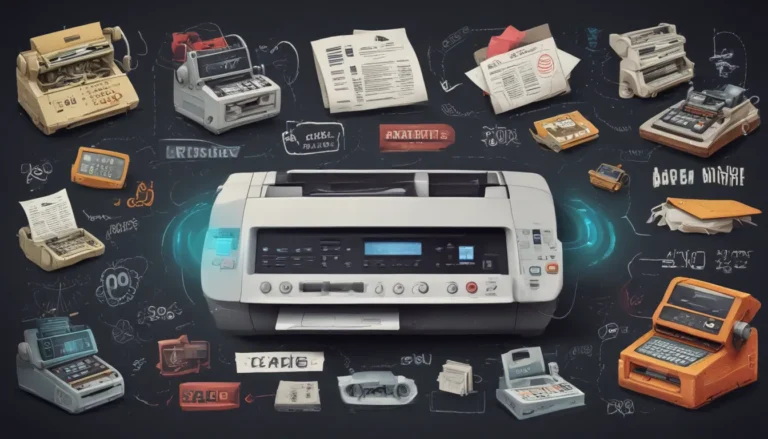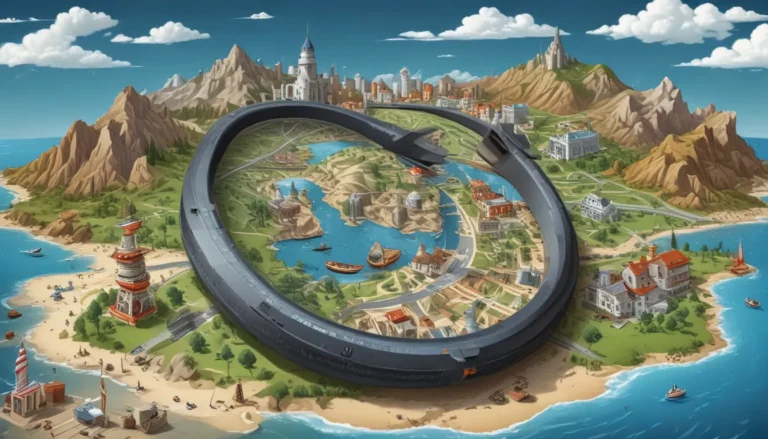A Note About Images: The images used in our articles are for illustration purposes only and may not exactly match the content. They are meant to engage readers, but the text should be relied upon for accurate information.
Computing plays a crucial role in our daily lives, influencing the way we work, communicate, and entertain ourselves. The evolution of hardware and the rapid advancements in software have transformed the digital landscape into a captivating and ever-changing realm. In this article, we will explore 32 intriguing facts about computing that highlight its history, innovations, and impact on modern society. Whether you’re a tech enthusiast, a student of computer science, or simply curious about the inner workings of the digital world, these facts will provide you with a fascinating glimpse into the world of computing. Let’s embark on a journey through binary code, artificial intelligence, and the revolutionary inventions that have shaped our interaction with technology.
Unveiling the Wonders of Computing
- The First Computer Virus: In 1971, the first computer virus was created, marking the birth of malicious software and the beginning of cybersecurity measures.
- The Birth of the World’s First Website: Tim Berners-Lee launched the world’s first website in 1991, revolutionizing the accessibility and sharing of information globally.
- The Origin of the Term “Bug”: In 1947, Grace Hopper discovered a moth in a computer relay, leading to the term “bug” to describe glitches in computer systems.
Exploring Human-Computer Interaction
- The Average Computer User’s Blink Rate: Computer users blink seven times per minute, highlighting the impact of technology on human behavior and physiology.
- The Invention of the First Computer Mouse: Douglas Engelbart invented the first computer mouse in 1964, transforming human-computer interaction.
- The Creation of the QWERTY Keyboard Layout: In 1873, Christopher Sholes designed the QWERTY layout to prevent typewriter jamming, setting the standard for keyboard design.
Celebrating Pioneers in Computing History
- The World’s first Computer Programmer: Ada Lovelace, an English mathematician, is recognized as the world’s first computer programmer, pioneering early computational algorithms.
- The Innovation of Hard Drive Storage: In 1980, IBM introduced the first gigabyte hard drive, revolutionizing data storage capabilities and laying the foundation for digital storage.
- The Inception of Computer-Generated Music: In 1957, the Illiac Suite for String Quartet marked the dawn of computer-generated music, combining technology and artistry.
Embracing Technological Milestones
- The Emergence of the First Computer Virus for PCs: In 1986, the Brain virus infected PCs, leading to the development of antivirus software to combat malware threats.
- The Evolution of Artificial Intelligence: Deep Blue defeated world chess champion Garry Kasparov in 1997, showcasing the power of artificial intelligence in strategic decision-making.
- The Establishment of the First Computer Network: ARPANET, established in 1969, laid the foundation for the modern internet, revolutionizing global communication.
Evolving User Interfaces and Technology
- The Introduction of Graphical User Interfaces: The Xerox Star in 1981 was the first computer to use a graphical operating system, shaping modern computer interfaces.
- The Innovation of Touchpad Technology: In 1983, the Gavilan SC incorporated a touchpad, revolutionizing intuitive computer interaction and paving the way for touch-based devices.
- The Integration of CD-ROM Drives: The Commodore Amiga in 1985 integrated a CD-ROM drive, transforming data storage and multimedia capabilities in computing.
Conclusion: Embracing the Future of Technology
In conclusion, these 32 computing facts offer a glimpse into the remarkable evolution and impact of technology on society. From the groundbreaking achievements in cybersecurity and artificial intelligence to the innovative developments in user interfaces and data storage, computing continues to redefine our daily lives. As we navigate the ever-expanding possibilities of technology, these facts serve as a testament to human ingenuity and the limitless potential of computing. Let’s celebrate the rich history and bright future of technology as we embark on this exciting journey of exploration and discovery.






